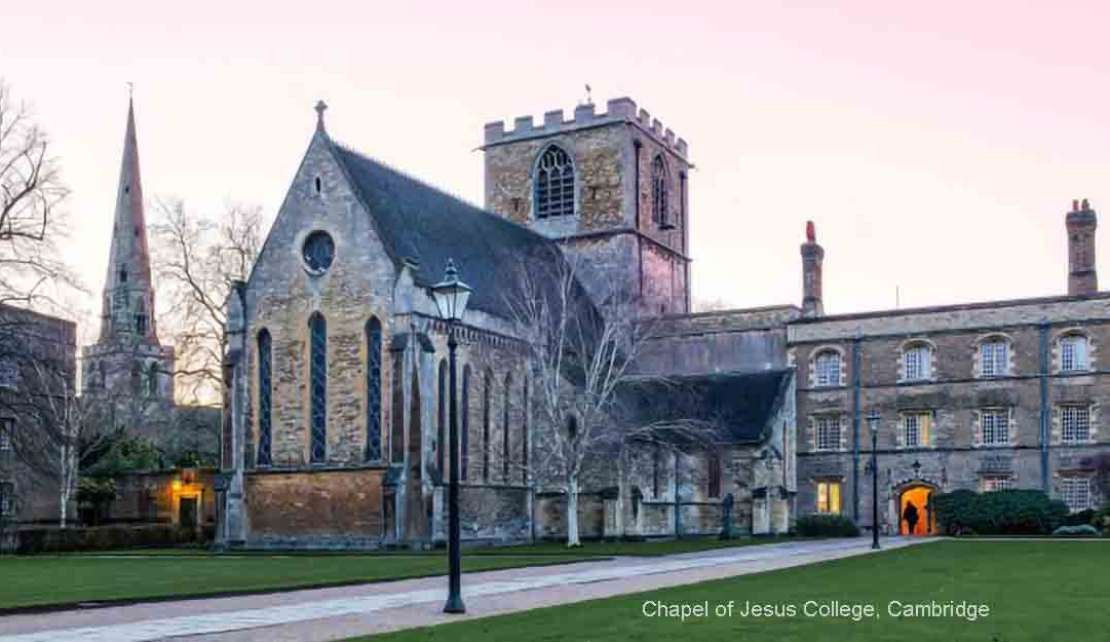BRITAIN | Consistory Court asked: Where in the Bible is Slavery Condemned?

LONDON, England, February 3, 2022 - AN ecclesiastical court hearing, set up to determine whether a monument to a slave trade investor should be removed from the chapel at Cambridge University’s Jesus College, was on Wednesday asked to consider ‘where in the Bible slavery is condemned’.
A report from the Cambridge News covering the Consistory Court hearing, said Justin Gau, a lawyer acting for those opposing the removal of the memorial, asked the court to consider whether slavery is actually condemned in the gospels, pointing to a passage in which it is mentioned without apparent criticism.
Justin Gau, of Pump Court Chambers, asked: “Where, for example, in the gospels is slavery condemned?”
He continued that St Paul returned a "slave to his master" and added: “What was he doing there?”
The college’s dean of chapel, The Reverend Mr. James Crockford, said it happened when St Paul expected the end of the world “imminently”.
The Rev Mr. Crockford said “we should indeed be understanding individuals within their context”, but said: “The memorial focuses very much on the financial virtues of Tobias Rustat and so there’s a particular lens within which we need to see this memorial.”
In answer to a question by the attorney as to whether church should always be a safe space, Rev Crockford, who is responsible for the chapel, replied: "Yes", and went on to point out to the court that he believes the memorial is a “barrier to (students’) participation” in the chapel”.
He told Mr Gau that, as he understands it, the “discomfort” of undergraduates and fellows regarding the memorial, relates to the “difficulty and significance of a monument that celebrates the life of the man … and his financial dealings”.
The lawyer representing persons who do not want the monument (or cartouche) to Tobias Rustat to be removed, expressed his displeasure with a number of emails from the university’s undergraduate community which expressed strong support for the removal of the memorial, and claimed Mr Rustat has “been clearly demonstrated” as “a very active slave trader”.
Mr Gau said there was “no demonstration in any document that Tobias Rustat was any sort of slave trader”.
The questioning and response took place on the first of three days of Consistory Court proceedings on the removal of a college chapel's memorial to a Cambridge University benefactor with links to the slave trade.
Following recommendations made by the college’s Legacy of Slavery Working Party in 2019 and 2020, the college took the view that the memorial represents a celebration of Rustat which is “incompatible with the chapel as an inclusive community and a place of collective wellbeing”.
Jesus College then submitted an application to the Diocese of Ely to relocate Tobias Rustat’s memorial from the Chapel to a permanent educational exhibition space in College.
The Consistory Court of the Diocese of Ely is an independent court presided over by a Judge known as the Chancellor. The consistory court is an ecclesiastical court, dealing with matters of law relating to the Church – mostly in relation to its buildings. In the Church of England, every Diocese has its own consistory court.
Being a Court of Law, it hears petitions for Faculty (a Faculty is a permissive right to undertake works to a church building or its contents) for changes or repairs to church buildings.
-30-
